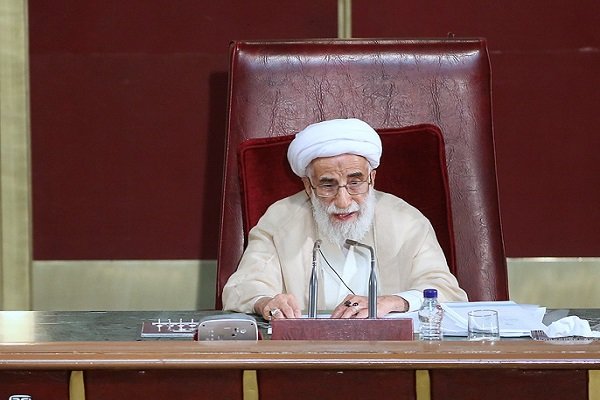Council puts up barrier to “seditionists”
LATEST
Iran’s Guardian Council has tightened its vetting of Presidential candidates, possibly to prevent a repetition of events in 2013 that led to a two-term Presidency for centrist Hassan Rouhani.
The 12-member body — six legal experts appointed by the judiciary and six clerics named by the Supreme Leader — announced 11 new conditions for candidates for the 2021 Presidential ballot.
The Council is requiring a “security clearance” so potential candidates are not “seditionists”, a regime label for those who protested the disputed 2009 Presidential election in which Mahmoud Ahmadinejad — now a foe of regime leaders — “won” a second term.
Candidates must name their advisors while registering, ensuring that they are also vetted by the Council.
Council spokesman Abbas Ali Kadkhodaei said the Council is still silent about whether women can or cannot run for President, although all female candidates to date have been rejected.
Kadkhodaei said the Council was implementing the Supreme Leader’s order of January to review the Constitutional provision that candidates must be “religious political men of Iranian nationality with a background in good management…who “re honest, pious and believe in the principles of the Islamic Republic and the country’s official religion”.
In 2013, the Council tried to block a centrist succession to Ahmadinejad, disqualifying former President Hashemi Rafsanjani for being “too old”, even though he was almost 10 years younger than Council Chairman Ali Jannati.
France Calls for Tough Approach on Ballistic Missiles, Iran in Syria
France has urged the European Union to consider new sanctions on Iran over its ballistic missile program and its involvement in the Syrian conflict.
The French have been developing since last autumn of a commitment to the July 2015 nuclear deal while taking tough line on missiles, in part to stave off US withdrawal from the agreement. Iran has tried to detach the Europeans from Washington, arguing that its ballistic missile testing is purely for defensive purposes and that the missiles cannot carry nuclear warheads.
Facing Donald Trump’s May 12 deadline for action to “fix the terrible flaws” of the nuclear deal or his refusal to extend US sanctions waivers, the three European signatories — France, Britain and Germany — are proposing new EU sanctions targeting Iranians who support the Assad regime and the ballistic missile program.
“We are determined to ensure that the Vienna accord [nuclear agreement] is respected,” French Foreign Minister Jean-Yves Le Drian said as he arrived for talks with EU counterparts on Monday. “But we must not exclude Iran’s responsibility in the proliferation of ballistic missiles and in its very questionable role in the Near and Middle East. That must also be discussed to reach a common position.”
The confidential document cites “transfers of Iranian missiles and missile technology” to the Assad regime, Yemen’s Houthi insurgency, and Lebanon’s Hezbollah.

